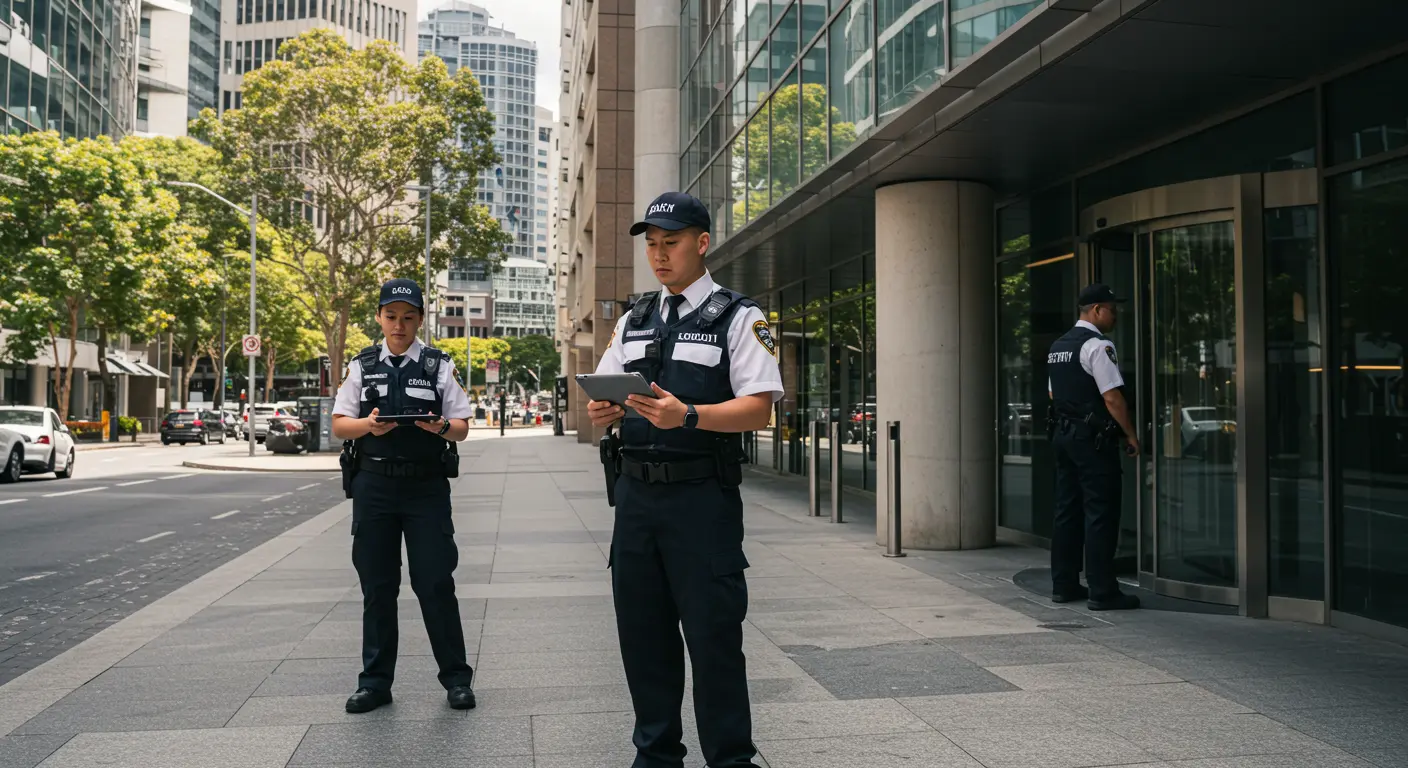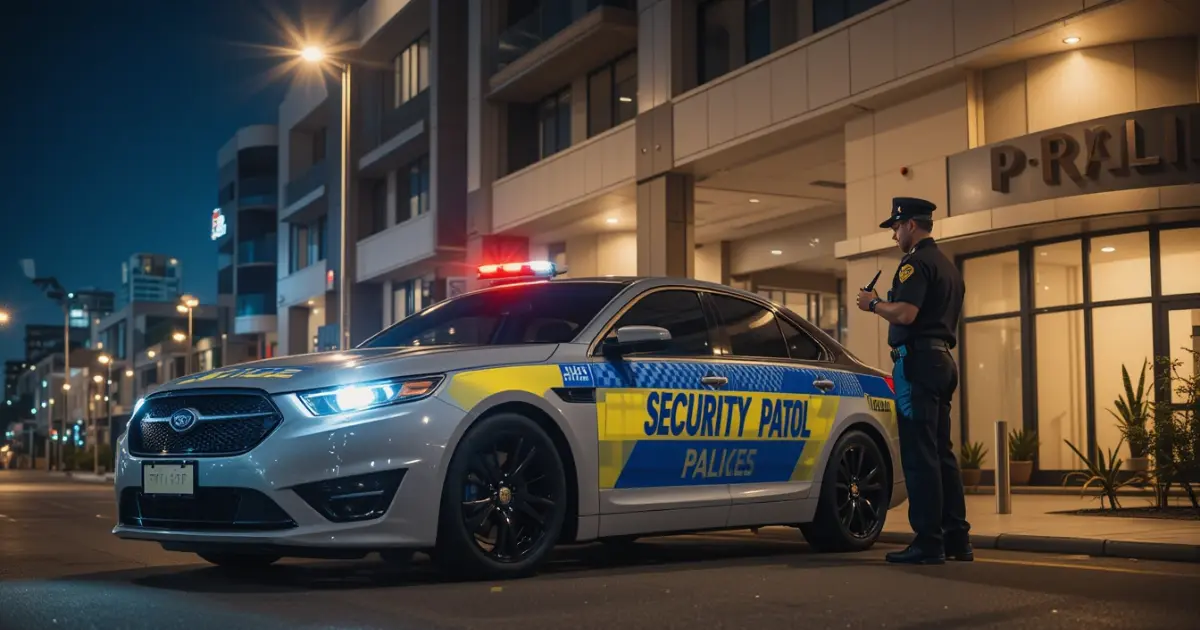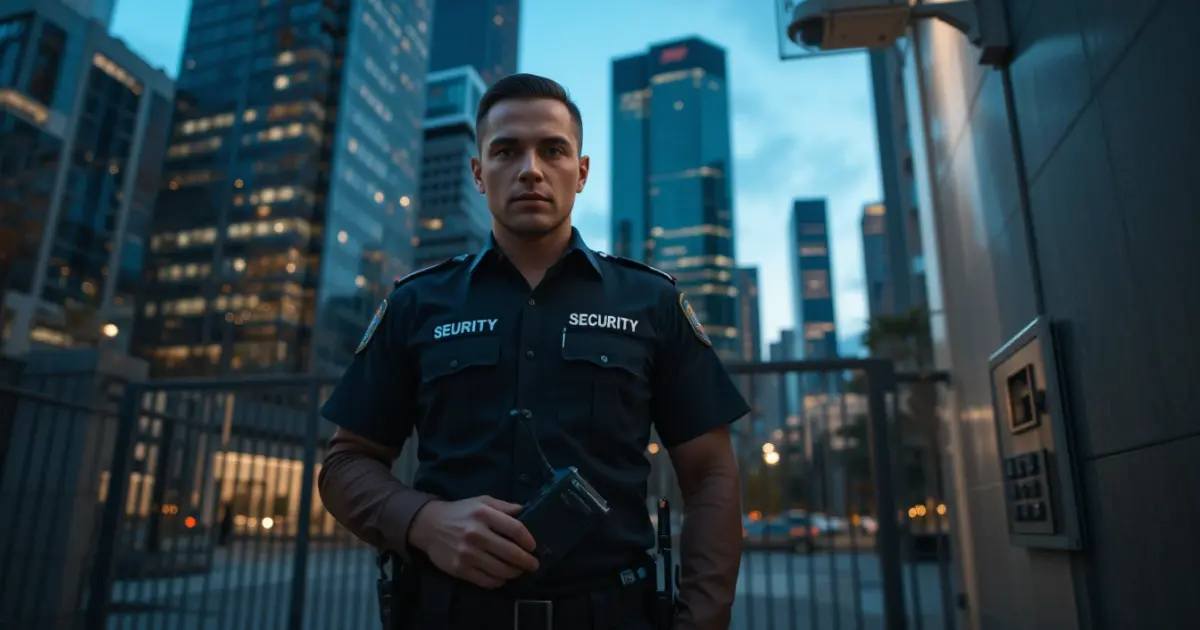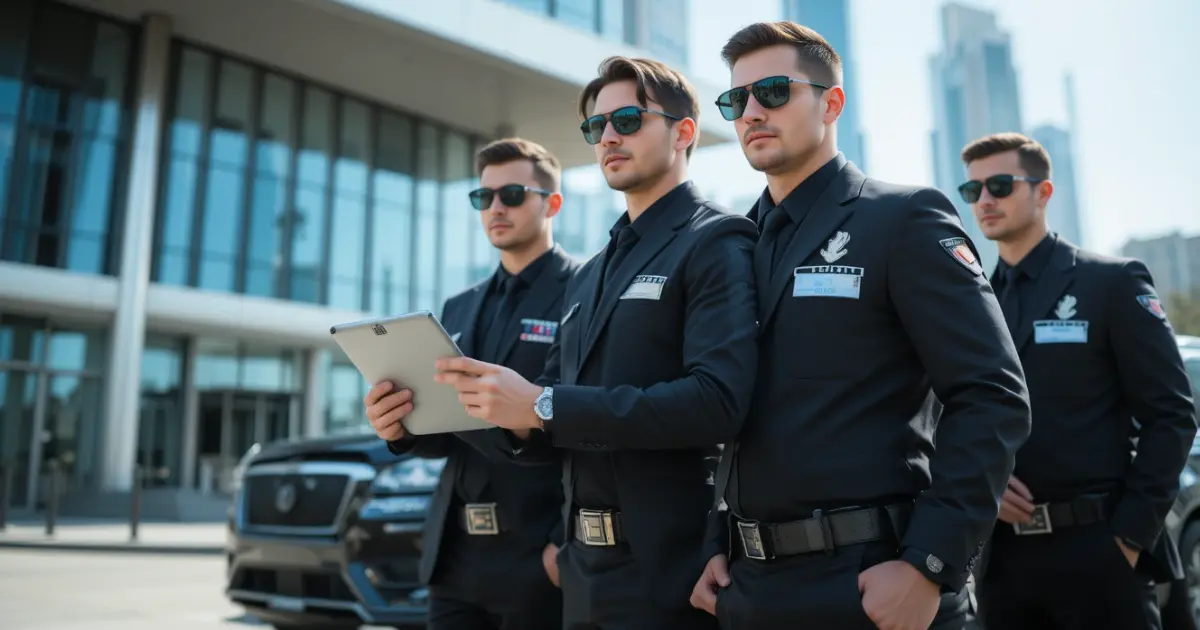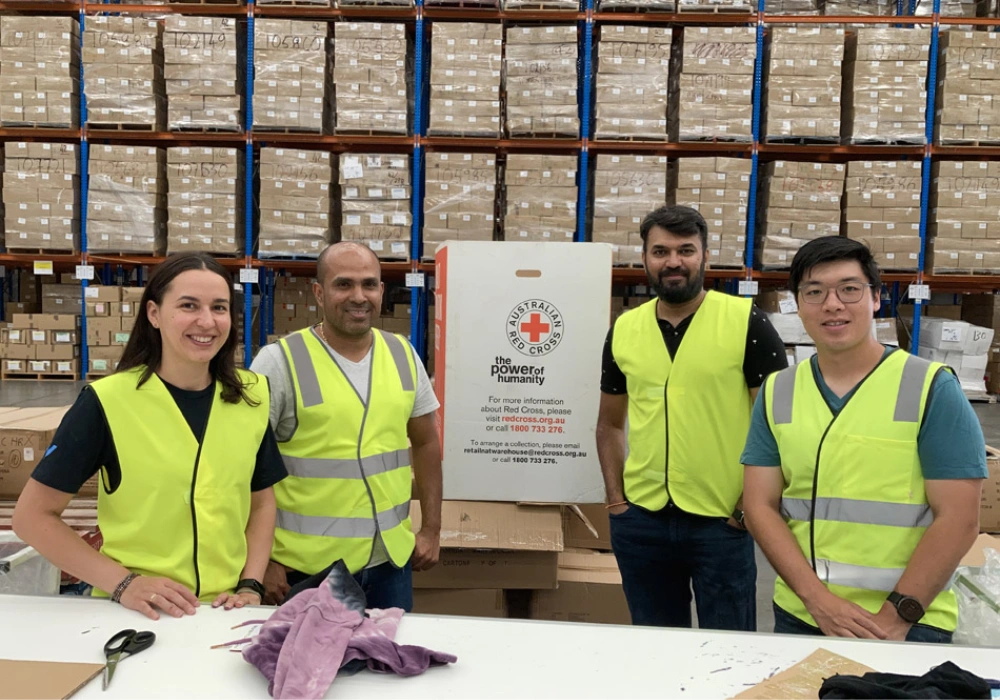Commercial security in Sydney is being chosen more often because businesses are facing new risks. Theft, vandalism, and cyber threats are growing, and companies want to protect their workers, customers, and property. Modern technology, like cameras and alarms, is also making it easier to stay safe.
In recent years, Sydney’s urban areas have seen an increase in crimes targeting businesses. Shops, offices, and warehouses are being broken into more frequently, leading to losses of money, inventory, and data. As a result, business owners are turning to professional security services to reduce these risks.
Another reason for the rise in demand is the growing awareness of risk management. Companies now understand that being proactive about safety is better than waiting for an incident to happen. By investing in security early, they can avoid costly damages and legal issues.
Additionally, new technologies like smart surveillance systems and remote monitoring tools are making commercial security more accessible and effective. These systems can be controlled through phones or computers, allowing businesses to check their premises anytime, anywhere.
💡 Tip: Did you know that 24/7 security monitoring is a top choice for businesses needing constant protection?
1. What Exactly Is Meant by Commercial Security?
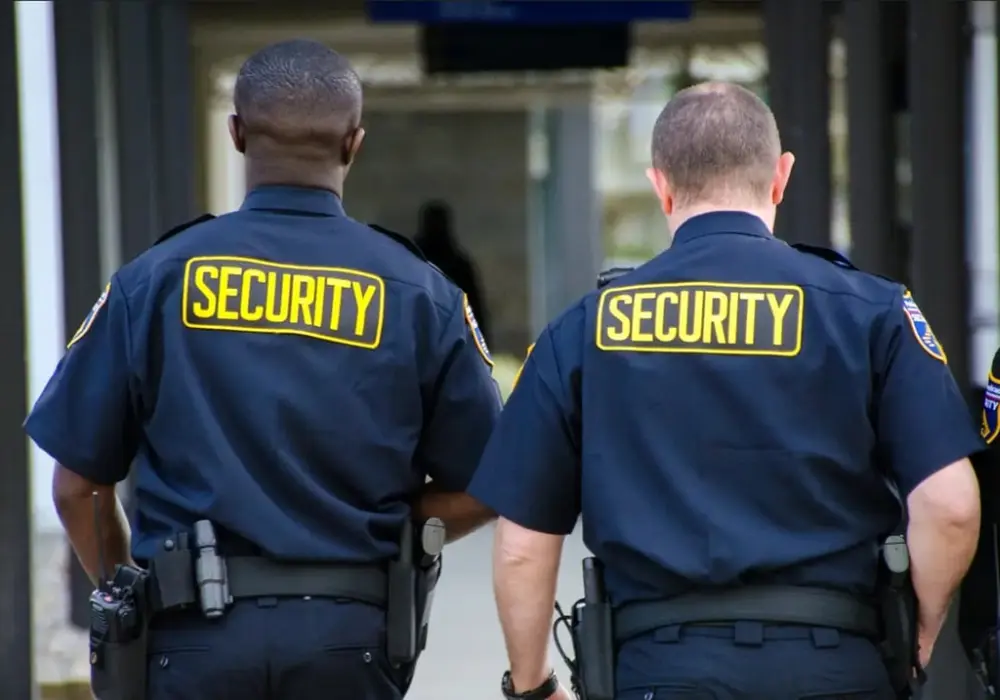
Commercial security means the tools and services used to keep businesses safe. These can include:
- Cameras that watch buildings day and night.
- Guards who patrol offices or stores.
- Alarm systems that warn about break-ins.
- Access control to block unwanted visitors.
What Are the Core Aspects of Commercial Security?
The main parts are:
- Watching for dangers (like cameras or guards).
- Stopping risks (with locks or alarms).
- Responding fast if something goes wrong.
These aspects work together to create a layered defense system. For example, cameras might detect a threat, alarms can alert staff, and guards can respond to the situation.
Which Components Make Up a Complete Business Security System?
A full system often combines cameras, alarms, access control, and trained staff. Together, they create layers of safety.
- CCTV Cameras: These record activity and act as a visual deterrent.
- Intrusion Alarms: These notify businesses of unauthorized entry.
- Access Control Systems: These use key cards or biometric scans to restrict entry.
- Security Guards: Human presence deters crime and allows for real-time responses.
- Cybersecurity Tools: Firewalls and encryption protect digital data.
💡 Tip: Learn how access control systems can boost workplace safety.
2. Are Crime Rates Influencing Business Security Decisions?
Yes. Theft and break-ins are rising in busy areas. Businesses are now more likely to invest in security to avoid losses.
According to a recent report, Sydney saw a 12% increase in commercial burglaries in the last year. Areas like the Central Business District (CBD) and inner-west suburbs are hotspots for these crimes.
Businesses in retail, hospitality, and logistics are especially at risk. For example, warehouses storing high-value goods often face theft, while restaurants might deal with vandalism after hours.
Why Are More Businesses Focusing on Risk Management Today?
Risk management means planning for dangers before they happen. Companies are learning that being prepared saves money and keeps workers safe.
For example, a business might install cameras to reduce the chance of employee theft or train staff to handle emergencies. These steps lower the risk of incidents and help companies avoid insurance claims.
How Are New Technologies Shaping Modern Security Systems?
New tools like smart cameras and remote monitoring are making security smarter. For example, alarms can now send alerts to phones, and cameras can detect motion automatically.
Modern systems also use artificial intelligence (AI) to analyze footage and spot unusual activity. Some can even recognize faces or license plates, making it easier to identify suspects.
💡 Tip: Discover how AI-powered security cameras are changing the game.
Do Regulations and Insurance Policies Require Better Security Setups?
Some rules say businesses must have certain security features. Also, insurance companies often give discounts for good security, which saves money.
For instance, businesses in high-risk industries like banking or healthcare might be required by law to have 24/7 surveillance. Similarly, insurance providers may ask for proof of security systems before offering coverage.
3. What Types of Commercial Security Services Are Available in Sydney?
CCTV Surveillance Systems
Cameras record activity and can be watched remotely. They are often placed at entrances, parking lots, and storage areas.
Benefits:
- Deterrence of theft and vandalism.
- Evidence for police investigations.
- Remote monitoring via smartphones.
On-Site Security Guards
Trained workers patrol buildings to stop crime. They can also monitor access points and respond to emergencies.
Benefits:
- Immediate response to threats.
- Human presence deters criminal behavior.
- Flexibility for short-term events (e.g., concerts or trade shows).
Access Control Systems
These use key cards or fingerprints to block unauthorized people.
Benefits:
- Control over who enters the premises.
- Audit trails to track movement.
- Integration with other security tools.
Alarm Monitoring Services
Alarms linked to security companies alert them if something is wrong.
Benefits:
- Instant notifications of break-ins.
- 24/7 support from monitoring centers.
- Customizable zones (e.g., motion sensors in storage rooms).
💡 Tip: Alarm monitoring in Sydney is a popular choice for businesses needing 24/7 protection. Learn more about alarm monitoring here .
Cyber Security Integration
Digital tools protect sensitive data from hackers.
Benefits:
- Protection against ransomware and phishing attacks.
- Secure customer and employee data.
- Compliance with privacy laws like the GDPR.
4. Does Commercial Security Actually Protect Employees and Customers?
Yes. Guards and cameras make spaces safer, reducing the chance of harm.
For example, a Sydney-based café installed cameras and hired part-time guards after repeated vandalism. Within weeks, incidents dropped by 80%.
Can a Good Security System Safeguard Both Physical and Digital Assets?
Absolutely. Physical items like inventory and digital data are protected by combining tools like locks and firewalls.
A logistics company in Sydney combined CCTV with cybersecurity to protect both its warehouse and customer databases. This dual approach reduced losses by 65% in one year.
Do Security Systems Act as a Real Deterrent to Crime?
Thieves often avoid places with visible security, like cameras or guards.
Studies show that 60% of burglars will skip a target if they see signs of security. This makes visible systems like warning stickers or guard patrols highly effective.
Will Having Security Give Business Owners Peace of Mind?
Definitely. Knowing a business is protected helps owners focus on growth instead of worrying about risks.
One small business owner in Sydney said, “Since installing cameras and alarms, I sleep better knowing my team and inventory are safe.”
5. How Do I Assess What Kind of Security My Business Needs?
Start by looking at past risks. For example, if theft is common, cameras and guards might help.
Conduct a security audit:
- Identify vulnerable areas (e.g., back doors, server rooms).
- Review past incidents (e.g., break-ins, cyberattacks).
- Consult with a security expert to fill gaps.
What Should I Look for in a Reputable Security Company?
Check reviews, experience, and certifications. A good company will explain its services clearly.
Key qualities to look for:
- Licensing: Ensure they have a valid security license.
- Experience: Choose a company with a proven track record.
- Customer Service: They should respond quickly to queries.
Why Is Licensing and Certification Important When Hiring a Security Firm?
Licensed companies follow laws and train their staff properly, ensuring quality service.
In Australia, security providers must comply with the Private Security Providers Act 2010 . This law sets standards for training, conduct, and equipment.
Should I Compare Pricing and Service Packages Before Choosing a Provider?
Yes. Some companies offer custom plans, while others have fixed prices. Pick what fits your budget and needs.
When comparing:
- Request detailed quotes.
- Ask about hidden fees (e.g., installation costs).
- Check cancellation policies.
Is 24/7 Support Essential for Reliable Business Security?
For many businesses, yes. Emergencies can happen anytime, so round-the-clock support is key.
24/7 services include:
- Live monitoring centers.
- Emergency response teams.
- Remote system access.
💡 Tip: 24/7 security monitoring ensures help is always available.
6. Is Investing in Commercial Security Really Worth It for the Future?
Yes. As crime and technology evolve, security will become even more important. Businesses that invest now will be ready for future challenges.
In the next five years, experts predict:
- More use of AI and machine learning in surveillance.
- Growth in hybrid systems combining physical and digital security.
- Increased demand for eco-friendly security tools (e.g., solar-powered cameras).
By choosing a forward-thinking provider today, businesses can future-proof their safety strategies.
💡 Final Tip : For businesses in Sydney, combining physical and digital security tools, like alarm monitoring services , is a smart way to stay protected.
7. Frequently Asked Questions (FAQs)
Cameras, alarms, guards, access control, and cyber tools.
To protect people, property, and data from risks like theft or hacking.
Prices vary by service. Basic camera systems start at $500, while full packages can cost thousands.
Yes. Restaurants, offices, and warehouses get plans tailored to their needs.
Small businesses are often targets for theft. Security tools like alarms or cameras can help them stay safe.
Commercial systems are designed for larger spaces and higher risks. They often include advanced features like AI analytics.
Cameras and alarms should be checked every 6–12 months to ensure they work correctly.
Some systems (like loud alarms) might need council approval. Always check local regulations.
Yes. Cybersecurity protects digital assets like customer data and payment systems.
Most systems are modular, meaning parts can be added or replaced as needs change.

